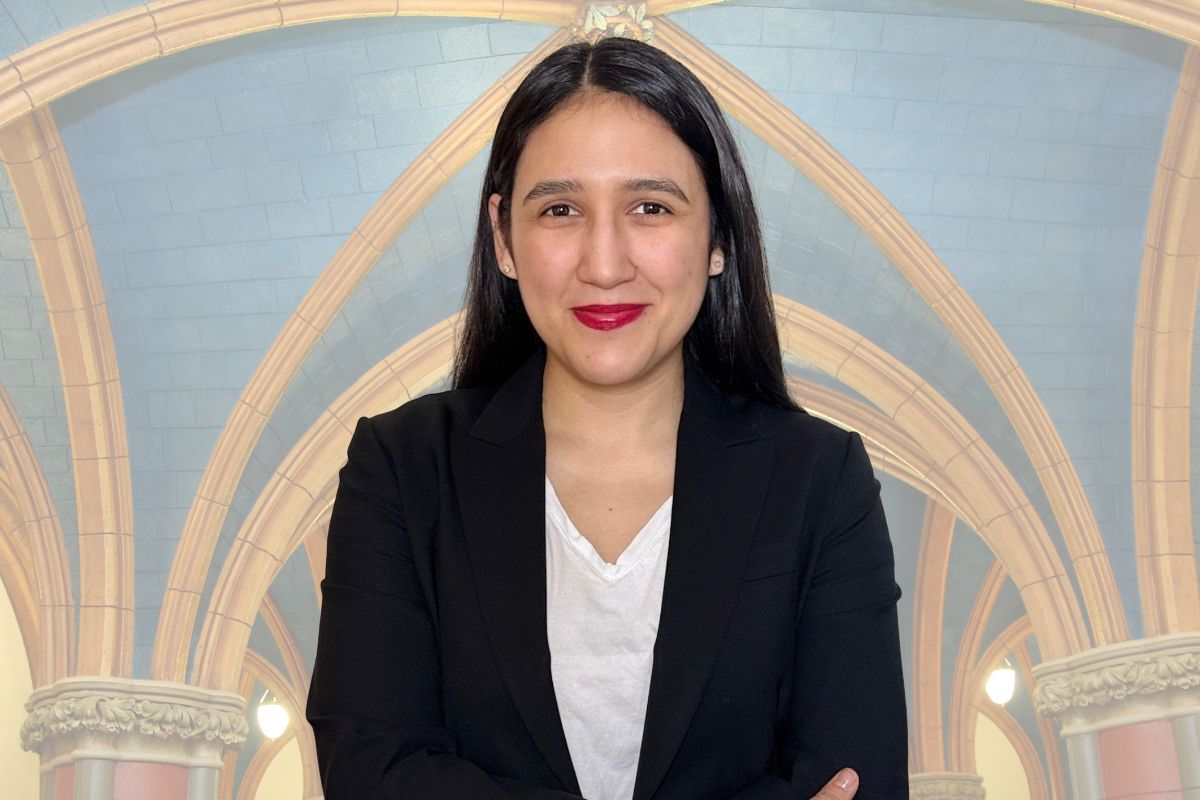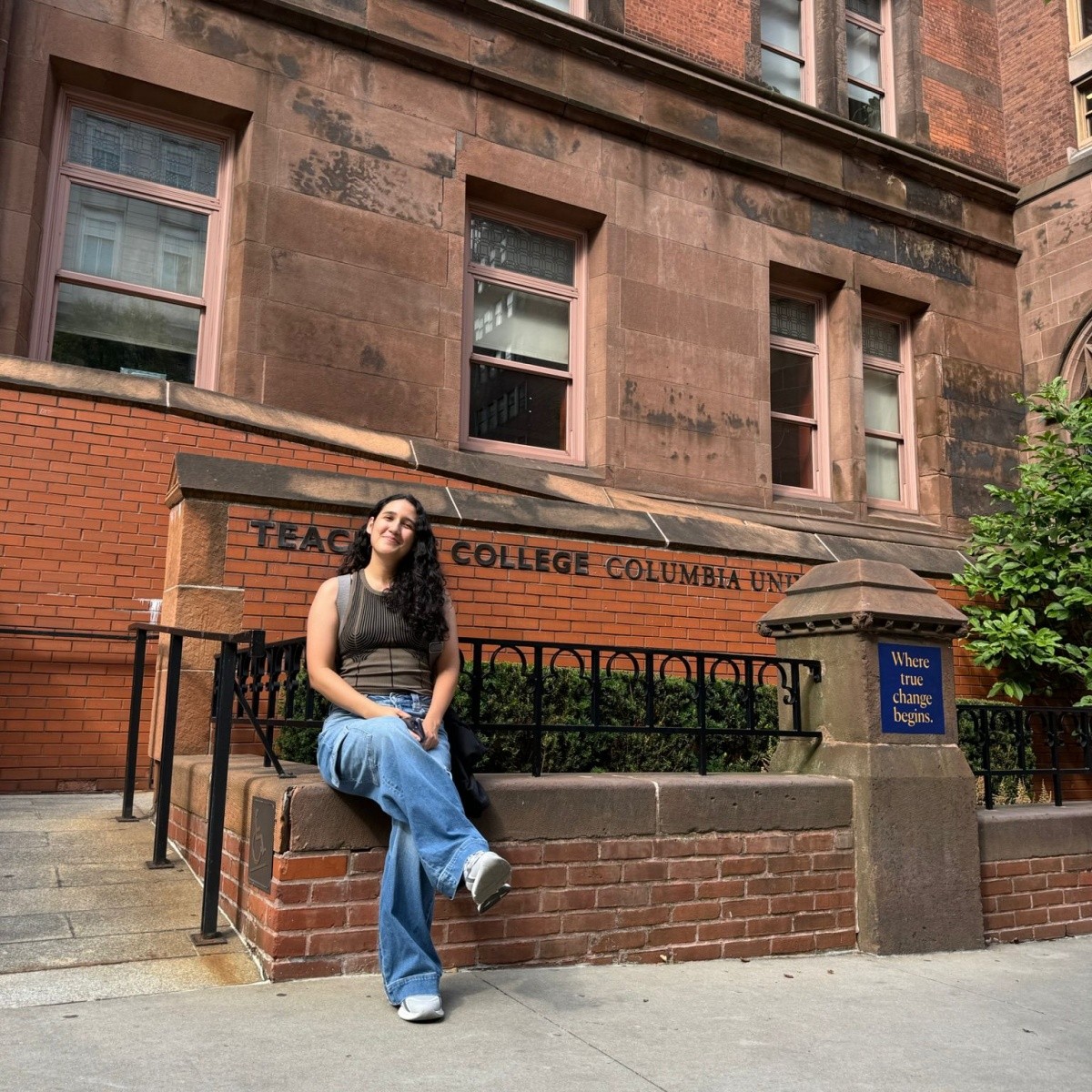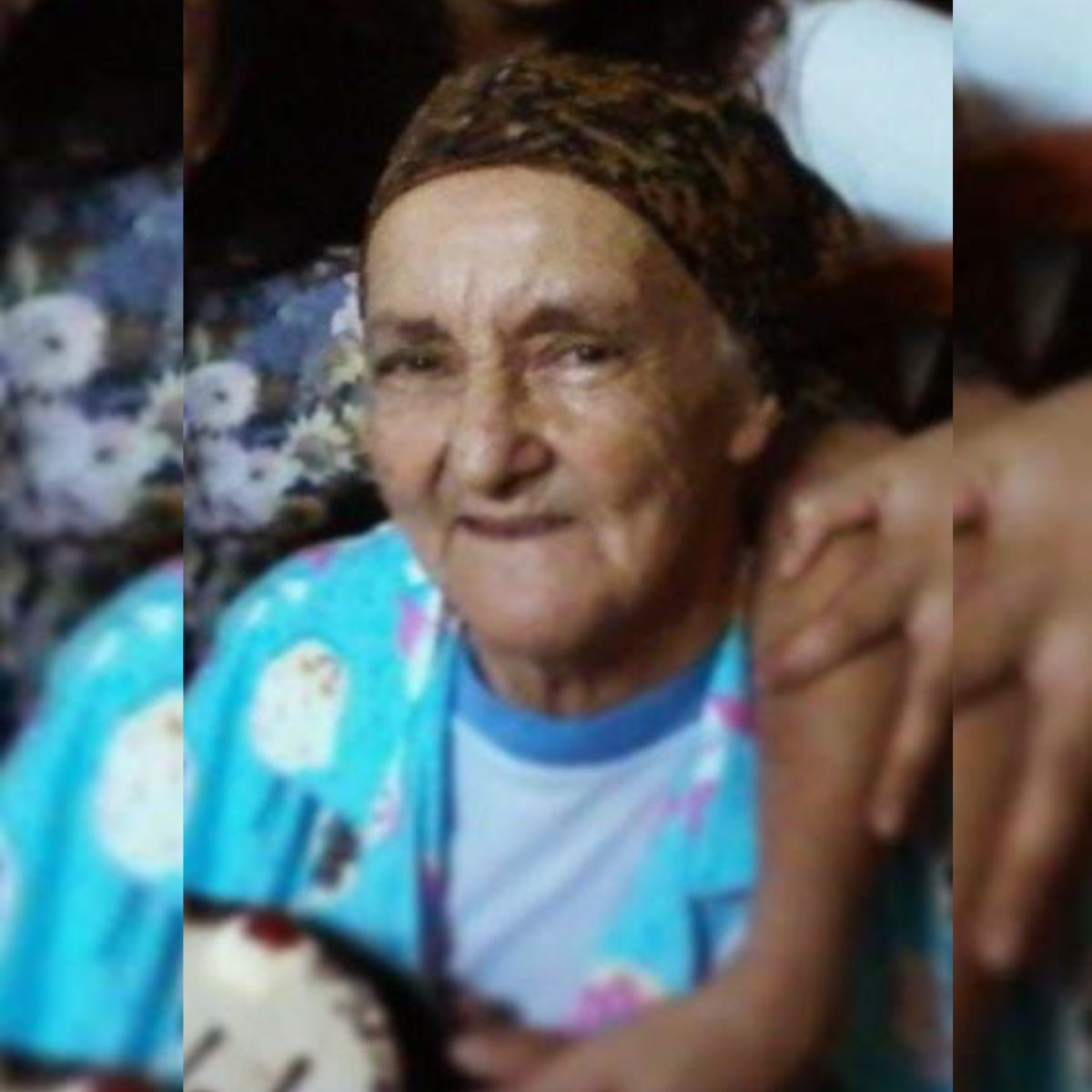In Paraguay, TC student Rosa Rossi Diaz’s grandmother taught local children — in her home, informally and unpaid. “She always wanted me to be a teacher,” says Rossi, now an educator herself who is deepening her practice in the College’s Bilingual/Bicultural Education program. “Languages are a way to forge the identity of children, and can open many doors.”
Rossi was one of such kids. She began English-immersion classes at just age nine and soon was tapped by her own teachers to support her peers. “In high school, I used to have 15 of my classmates in my house trying to learn English and reviewing lessons in one day,” recalls Rossi, who later ventured to the U.S. as an au pair to continue her immersion and see the country she read about in her textbooks.
When Rossi, a first-generation college graduate, decided to pursue graduate school, it was her New York host family that encouraged her to apply to TC: “Why don't you apply to the best school of education? What is telling you not to do it?” they told Rossi, who feared she wouldn’t be accepted. After working on her application diligently and saving money, Rossi received her acceptance to Teachers College and scholarships to support her studies.
“When I got my admission letter I decided to go to McDonald's. While there, reality struck and I started crying, I was like, ‘What is happening to me? I’m going to be part of the bilingual program at TC,” recalls Rossi , who will earn her master’s degree next year. “This wouldn't have happened if I didn't have people that believed in me, like my grandma and my brother Ricardo who made me study English when I was little, and I want to show my students that they can be whatever they want to be in the future because I believe in them.”
As a bilingual educator with more than six years of experience, Rossi is teaching in New York at a critical moment: more than 20 percent of people in the U.S. speak a language other than English at home and migrant data suggests that 40 percent of students will be English language learners by 2030, creating a demand for educators prepared to offer proper support.
“Every child has their own story and you need to be very, very mindful with the way you teach,” says Rossi, noting the hardships endured by her migrant students. To help them “embrace multiple cultures,” Rossi emphasizes her coexisting affection for her Paraguayan identity and home in the United States.
“By having a teacher that is also from another country, [students] do feel represented. They feel that they can come up to you, talk to you in their home language, and look at you as a prospect for their own future,” says Rossi,” whose experiences in the classroom have further reinforced how she can help. “We need bilingual educators.”
In addition to continuing her work in the classroom, Rossi aspires to one day open her own language center — perhaps in Paraguay, where Rossi’s late grandmother knew she would one day be a teacher making a difference. “We need more advocates for students who are also in service in the classroom.”



